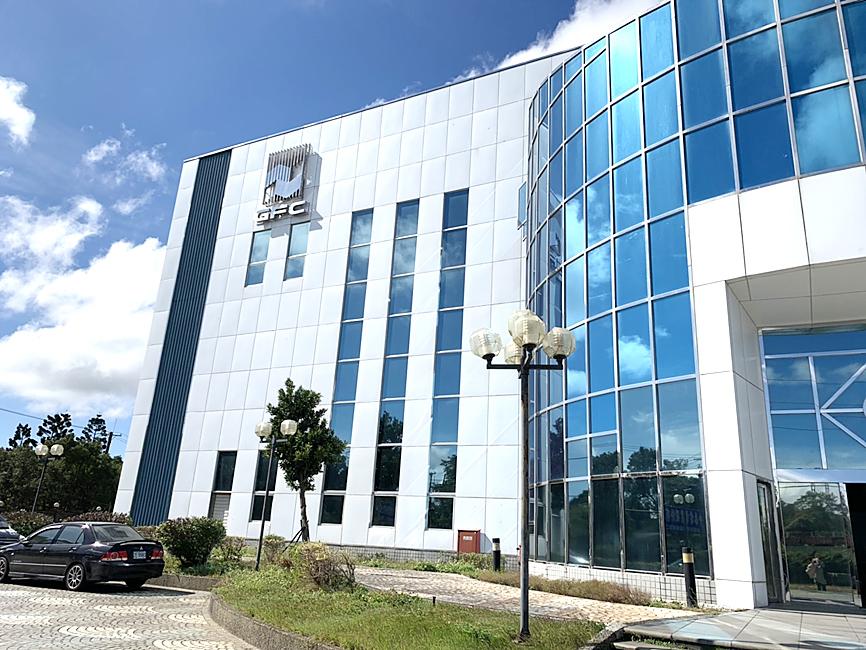Elevator supplier Golden Friends Corp (崇友實業) yesterday posted NT$330.48 million (US$11.62 million) in revenue for last month, a 38.7 percent rise from a month earlier, amid continued recovery in the local property market, although the figure fell 15.15 percent from a year earlier.
Revenue in the first quarter totaled NT$1.03 billion, a 3.66 percent increase from a year earlier, Golden Friends data showed.
Replacement of old elevators rose 16.35 percent, accounting for 24.69 percent of overall installments, or 500 elevators, in the January-to-March period, the Taipei-based company said in a statement.

Photo: Lin Jing-hua, Taipei Times
Its maintenance and repair business serviced 37,100 elevators and escalators in the quarter, an increase of 4 percent from a year earlier as government agencies and companies become more aware that elevators play an important part in building safety, it said.
Golden Friends is upbeat about its business going forward, even though developers might turn cautious following a spate of unfavorable policies to cool the property market, as real demand for housing and office space remains, the company said.
Firms shifting manufacturing facilities home from China would also lend support to its business, it said.
Contracts on hand so far this year have spiked 18.05 percent from the same time a year earlier, laying a healthy foundation for business in the short to medium term, Golden Friends said.
It intends to boost its market share by spending more to improve the ease and convenience of elevator rides, helped by the latest technologies, it said.
Last month, Golden Friends proposed a cash dividend of NT$3 per share based on its net income of NT$726 million last year, or earnings per share of NT$4.1.

SEMICONDUCTORS: The German laser and plasma generator company will expand its local services as its specialized offerings support Taiwan’s semiconductor industries Trumpf SE + Co KG, a global leader in supplying laser technology and plasma generators used in chip production, is expanding its investments in Taiwan in an effort to deeply integrate into the global semiconductor supply chain in the pursuit of growth. The company, headquartered in Ditzingen, Germany, has invested significantly in a newly inaugurated regional technical center for plasma generators in Taoyuan, its latest expansion in Taiwan after being engaged in various industries for more than 25 years. The center, the first of its kind Trumpf built outside Germany, aims to serve customers from Taiwan, Japan, Southeast Asia and South Korea,

Gasoline and diesel prices at domestic fuel stations are to fall NT$0.2 per liter this week, down for a second consecutive week, CPC Corp, Taiwan (台灣中油) and Formosa Petrochemical Corp (台塑石化) announced yesterday. Effective today, gasoline prices at CPC and Formosa stations are to drop to NT$26.4, NT$27.9 and NT$29.9 per liter for 92, 95 and 98-octane unleaded gasoline respectively, the companies said in separate statements. The price of premium diesel is to fall to NT$24.8 per liter at CPC stations and NT$24.6 at Formosa pumps, they said. The price adjustments came even as international crude oil prices rose last week, as traders

SIZE MATTERS: TSMC started phasing out 8-inch wafer production last year, while Samsung is more aggressively retiring 8-inch capacity, TrendForce said Chipmakers are expected to raise prices of 8-inch wafers by up to 20 percent this year on concern over supply constraints as major contract chipmakers Taiwan Semiconductor Manufacturing Co (TSMC, 台積電) and Samsung Electronics Co gradually retire less advanced wafer capacity, TrendForce Corp (集邦科技) said yesterday. It is the first significant across-the-board price hike since a global semiconductor correction in 2023, the Taipei-based market researcher said in a report. Global 8-inch wafer capacity slid 0.3 percent year-on-year last year, although 8-inch wafer prices still hovered at relatively stable levels throughout the year, TrendForce said. The downward trend is expected to continue this year,

Taiwan Semiconductor Manufacturing Co (TSMC, 台積電), which supplies advanced chips to Nvidia Corp and Apple Inc, yesterday reported NT$1.046 trillion (US$33.1 billion) in revenue for last quarter, driven by constantly strong demand for artificial intelligence (AI) chips, falling in the upper end of its forecast. Based on TSMC’s financial guidance, revenue would expand about 22 percent sequentially to the range from US$32.2 billion to US$33.4 billion during the final quarter of 2024, it told investors in October last year. Last year in total, revenue jumped 31.61 percent to NT$3.81 trillion, compared with NT$2.89 trillion generated in the year before, according to